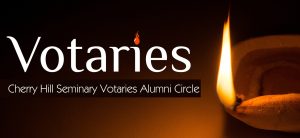
Kerry M. Robinson, CMC
This entire course has been valuable in a number of ways: clarifying who I am, both strengths and deficits, giving me new ideas and tools for working with others within or outside of my faith system, and helping me clarify my foundation.
For me, some of the most important section(s) where those asking me to clarify my values, ethics and morals, and my personal theology. For me, that type of work is about accountability, critical thinking, and intentional action. Questions and assignments helped improve my perspective, deepened my understanding that there’s a difference between belief and knowledge, and encouraged me to articulate my position regarding personal values, etc. I had to identify what and why, my contradictions, whether actions and thoughts were congruent, and what I’d need to do to achieve congruence between beliefs and actions.
These assignments affirmed the core pieces I’ve carried with me since my discovery of Paganism, gave them names, and deepened my understanding of what matters and why. I can see, more clearly, the intersection within my personal, professional, and spiritual life. Am I true to myself in all arenas? My answers helped me answer that question, and I was pleased to see I’ve done much to “practice what you preach,” and to be a model for others. I can also offer these reflections, and tangible tools, to others who’re seeking to do clarification work.
Not only do I feel more confident that I’ve done a deeper level of clarification work regarding the topic of ethics, morals, and values, I now have material I can return to; a manifesto that I can check-in with regarding whether my original lists are still true, if they’ve changed somehow, or if they need to be changed and further clarified. I love this type of work, would like to see other leaders do it, do more of it, and do it regularly.
My advice? Take this section (morals, ethic, values) very seriously. We think we know the answers to these types of questions, though the reality is that we’re likely filled with assumptions and biases, and may’ve never actually clarified our values/morals/ethics/personal theology in a concrete manner. How can we explain, or teach others, if we can’t articulate our own position? Catchphrases such as Love and light, be nice, and treat others as you would be treated are concepts that can have vastly different meanings.
Do the work, and revisit it every few years in order to explore if anything has changed. In doing so, we travel through the psycho-social stages of development, discover where we’re at regarding spiritual development, and get to be reminded that each person has a different list from our own, or may prioritize things differently. We can continually explore whether we’re being true to ourselves and goals, and answer the questions of whether our role-modeling matches our stated goals and skills, and what we leave behind as a legacy.
Self-assessment and clarification work are forms of shadow-work in my opinion. We may not like what we find. We might discover we’ve lost our way, and that we’re hypocrites. These assignments help identify if that’s the case, and provide tools for doing something about it. To be of service, to self, others, and to the divine, we benefit by continual self-reflection and a willingness to change.



